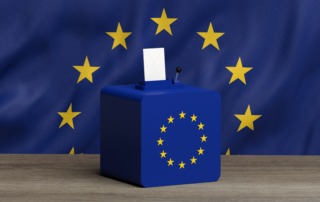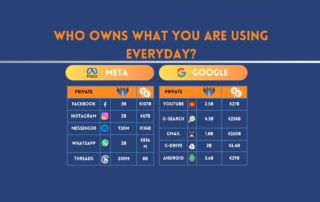The Threat of AI-Generated Disinformation to European Elections and Democracy
In view of the elections that will be held in 2024 in the EU and other parts of the world including the US and UK, there are various challenges to democratic processes as technological advancements are on the rise. It is argued that electoral periods and times of political crisis serve as fertile ground for the production and dissemination of AI-generated content, heightening concerns about the impact on public perception and democratic processes. Recent instances have demonstrated the alarming potential of AI to enable the production of deceptive narratives, with such disinformation finding [...]
AI Hallucination: When AI Makes Things Up
The word “hallucinate” was announced as the word of the year by the Cambridge Dictionary in 2023. It means “to seem to see, hear, feel, or smell something that does not exist, usually because of a health condition or because you have taken a drug”. The term "hallucination" originates from the Latin word "alucinari," meaning to wander in the mind. Yet, the Cambridge Dictionary added another definition for the word that signifies the emergence of a new phenomenon: “When an artificial intelligence hallucinates, it produces false information”. This indicates that AI may have [...]
The Relevance of Chomsky’s Media Theory in Today’s Digital Landscape: Media Ownership
In an era dominated by social media and big tech giants, the concentration of media ownership has become more important than ever. The infographic above depicts the ownership landscape of major platforms and reveals an interesting truth that media control lies in the hands of a few, steering the narratives that reach billions of users worldwide. This phenomenon echoes the sentiments expressed by the famous linguist and philosopher Noam Chomsky in his ground-breaking media theory, specifically his first filter of the “Five Filters of the Mass Media,” the ownership. Chomsky’s media theory, often referred [...]
Data Literacy in the Age of Datafication: A Package to Understand How Digital Technology Treats Us
The complexity of technology, coupled with the emergence of datafication, presents new challenges for society to understand how the world works. Artificial intelligence and big data are just a few examples of the advanced technologies we have to deal with. However, both show the same trend, which is the increasingly important role of data in decision-making. Decision-making is now also automated. This process relies on technologies such as deep learning and the availability of large, real-time data to provide insight, and new knowledge to make policies. One of the easiest examples of the datafication [...]
“Using Media Literacy to Fight Digital Fake News in Later Life: A Mission Impossible?”
Media Literacy Training for Seniors to Fight Fake News The European Commission defines disinformation as “false or misleading content that is spread with an intention to deceive or secure economic or political gain,” whereas misinformation refers to the same kind of content shared without harmful intention, regardless of its consequences. Disinformation is commonly referred to as ‘fake news,’ and it seriously threatens the credibility of information sources and causes public harm on many layers. Media literacy training functions as a strong instrument used to combat the spread of false information by empowering citizens [...]
Assessing Media Literacy Levels and the European Commission Pilot Initiative
Continuing its endeavors to measure media literacy, the European Commission in cooperation with its ML Expert Group, undertook a pilot exercise in the field. Member states were invited to participate on a voluntary basis. The countries that took part in the exercise had the opportunity to attend network meetings organized in Brussels. There participants were provided with the time and space to exchange ideas, discuss the progress of their initiatives and were offered the support of an individual advisor. This report provides information about assessing media literacy levels in Europe. It has been drafted following [...]
Audiovisual Media Services Directive – EAVI’s CONTRIBUTION
EAVI'S CONTRIBUTION ON THE PUBLIC CONSULTATION ABOUT THE AUDIOVISUAL MEDIA SERVICES DIRECTIVE 2010/13/EU (AVMSD)EAVI'S CONTRIBUTION ON THE PUBLIC CONSULTATION ABOUT THE AUDIOVISUAL MEDIA SERVICES DIRECTIVE 2010/13/EU (AVMSD) With a widely shared and thorough understanding of the growing importance of medialiteracy principles in contemporary society, especially in a constantly evolving media situation, we remind why media literacy policy references were part of the AVMSD in a first instance - and secondly, invite reflections on why there is a risk that this will cease to be the case in the future. The existing norms should be clarified [...]


























































































































































